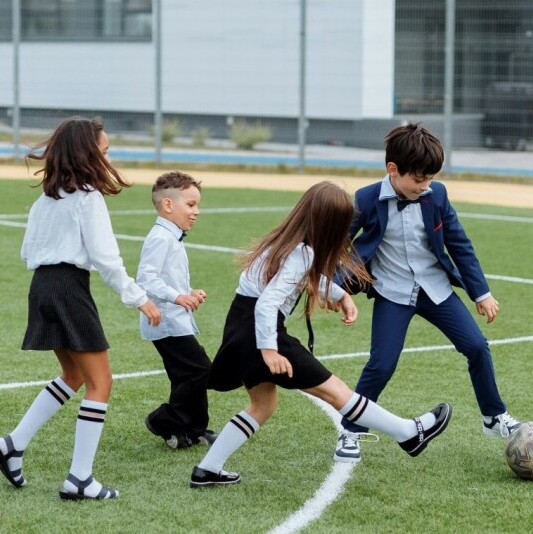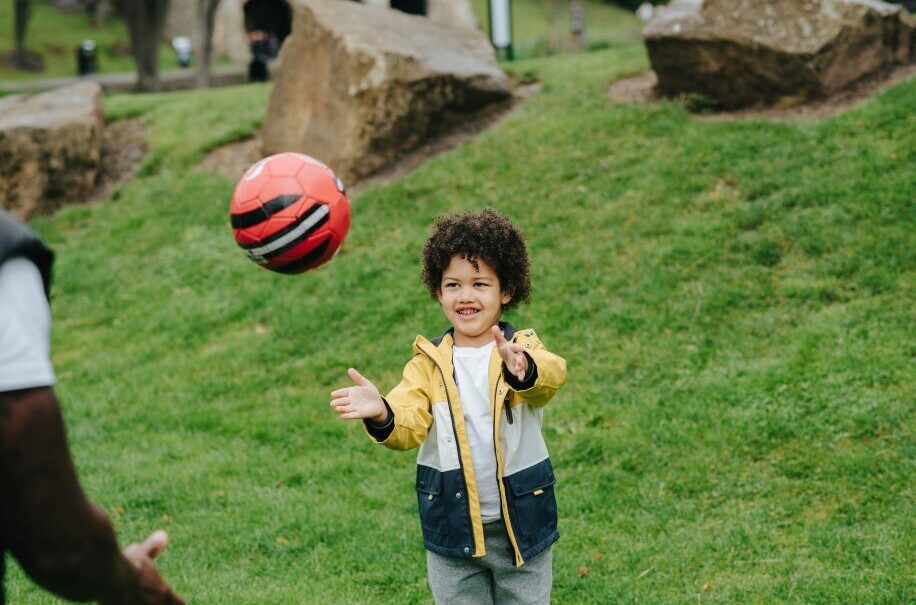Autonomy in Child Development
Up to this point in your child’s development, she has been dependent upon your help to accomplish many daily living tasks. His sense of being able to do things by himself has been limited. However, it is this sense of her own abilities that you have been watching grow. For the parent, this is very fulfilling. Between the ages of six and eight, your child’s sense that he needs your help will begin to fade. Of course, he still does, but you will begin to encounter an attitude of self reliance in your child. This is a good development. Let it happen. Be aware of your child’s strengths and weaknesses. Give her help only when she needs it. Your attitude should be that your child can do things. Be a little slow to jump into a situation to help your child. One important developmental skill your child is learning are her strengths and weaknesses. A natural part of the learning process is failure experiences. It is natural for your child to experience failures. However, it is your duty as a parent to not let him experience so many that he is overwhelmed and develops a negative attitude toward his abilities. You want to help your child develop a positive attitude toward his ability to accomplish things in his life.

Cognitive Developmental Milestones, Years 6-8
During ages 6 through 8, you will witness your child responding to the world in a more abstract way. This basically means that your child will be comprehending her world in larger chunks of information. For you as a parent, this ability will be very helpful. For example, your child will be able to carry out instructions with 3 or more steps. You won’t need to be immediately available to keep her focused and to remind her of the different steps of the task. Another parent-friendly skill will be your child’s ability to tell time. Being able to tell time will help your child organize his daily life activities. She will no longer have to rely upon the sequence of daily events, because she will connect events to numbers on a clock. This will make her behavior more flexible when the sequence of daily events have to be changed.
Another important, developmental skill is cognitive flexibility. A child who displays cognitive flexibility has the ability to use her skills in a variety of ways. For example, your child will begin to count backwards as well as forward. Being able to count backwards improves your child’s ability to learn subtraction in math. Likewise, counting forward improves your child’s ability to learn addition. Cognitive flexibility can also be seen in your child’s understanding of right and left. Not only will this flexibility make learning to dress easier for your child, but it will increase your child’s orientation to his body.
 Social/Emotional Milestones
Social/Emotional Milestones
Your child’s social and emotional development begins to acquire a complexity not found in the younger ages. The extensive amount of help that was needed in infancy disappears. This independence leads the child into more complex interactions with her environment. Along with increased independence comes a greater awareness of self and others. This self-awareness will be demonstrated through your child’s increased modesty about his own body. He will also begin to show signs of jealousy. Such emotional responses shows her greater awareness of herself as compared with others. You will want to help your child appreciate herself as a unique person and to value that uniqueness.
At this age, children begin to mimic adult behavior. This shows a growing awareness of themselves as no longer a young child who needs constant help. It also shows your child’s increasing awareness of adult behavior. Your child is essentially learning to be an adult and is watching you for the clues. Your child is very receptive to learning this behavior. The behavior that you are modeling everyday teaches your child how to manage life’s demands. Your own behavior that you are modeling is very important for your child’s future.
Your child is seeking more independence and will seek this through cooperating and playing with other children of different genders. While you don’t want to control your child’s social world, you will need to be aware of the friends your child makes and teach your child to pick friends who show friendliness and respect to others. These skills will be very important for her success as an adult.
 Language Developmental Milestones
Language Developmental Milestones
At six years of age, your child will begin to read at grade level. This skill will expose her to information she would never encounter otherwise. A couple years ago, your child began to form symbols. In her reading, your child will encounter both visual and language symbols. At this time, you don’t want to merely read to your child. You did that when she was three years old. Now, you want to read with your child. When you are reading with your child, take turns reading. You can read a paragraph then your child can read a paragraph. When you are reading, have your child visually follow along with you. Have him move his pointing finger under the words you are reading as you read.
In her language development, your child will understand most of your everyday speech and will be able to speak so that a stranger would be able to understand her. His speech will be so fluent that you will tend to think your child understands everything you say to him. This is not true. Your child does not have full language development. When you speak to your child, you are always speaking within some environment. It is always within a daily routine. These environments give your child many clues about what you are saying. Thus, your child can appear to understand all that you are saying when she does not. He can also misinterpret what you say. You need to always check your child’s understanding of information he has received.
 Movement Developmental Milestones
Movement Developmental Milestones
Your child’s movement is becoming much more fluid. He is beginning to generalize some basic movement skills of earlier years to such actions as catching a ball, alternating feet when walking up and down stairs, and sliding down a slide. Actions such as catching a ball require coordination of both his eyes and hands. This skill is similar to that of writing, which she is learning in school. This shows how motor skills support cognitive and academic skills. Taking time to do such things as playing catch with your child will have benefits for both his motor and academic development. In addition, the social interaction you will have with your child will provide models for her of social and emotional skills.
